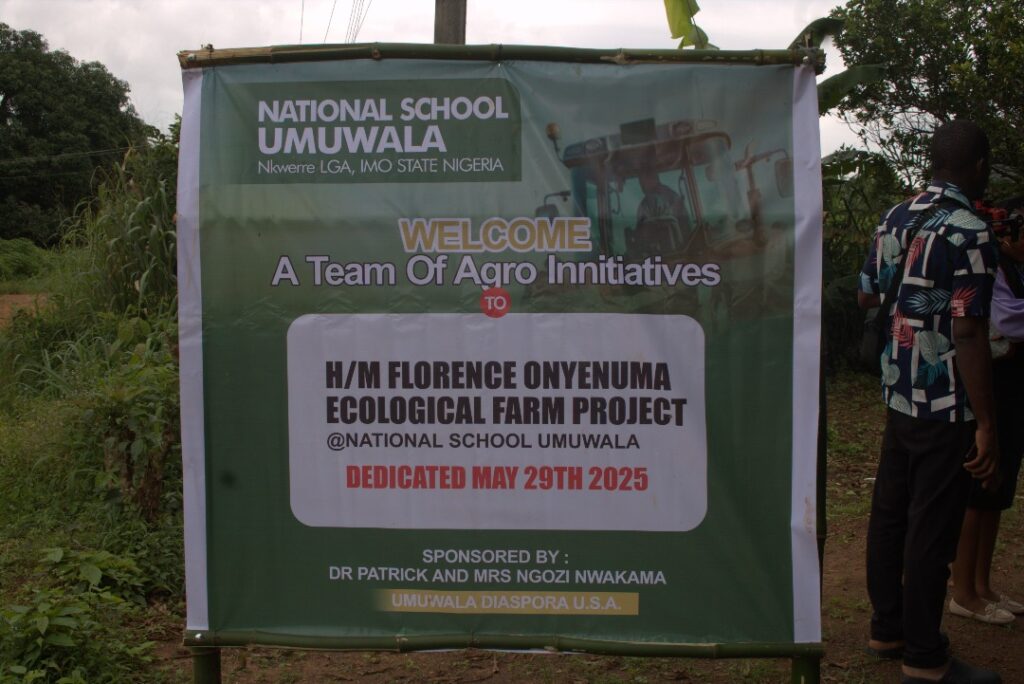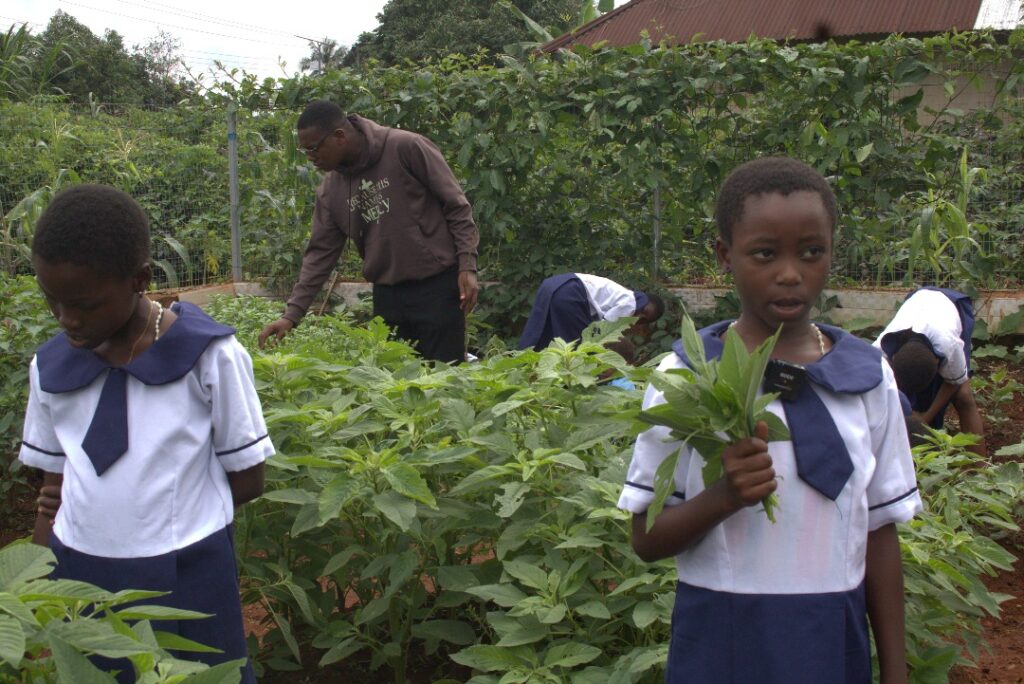The Florence Onyenuma Ecological Farm was officially inaugurated at National School, Umuwala, located in Nkwerre Local Government Area of Imo State.
This initiative aims to reinvigorate agricultural learning and practice among schoolchildren, addressing a significant gap in practical farming education.
The farm project was spearheaded by Dr. Patrick Nwakama, an alumnus of National School, Umuwala and former secretary of the Young Farmers’ Club during his school years.
Dr. Nwakama initiated this vision to address the decline in agricultural engagement in his hometown, identifying the need to cultivate interest in farming from an early age.
“If we must change the future of agriculture, we must start with children,” Dr. Nwakama emphasized.
He pointed out that while the community still has vast farmlands and adults actively involved in farming, many youths have abandoned agriculture in pursuit of opportunities in urban areas.
This shift has left farming largely neglected despite its crucial role in sustaining families by providing food, income for school fees, and supporting church levies.
Before this project, agricultural education at the school was largely theoretical, with limited hands-on activities.

Dr. Nwakama highlighted ongoing efforts to introduce farm mechanization to the school with modern tools such as a compost maker (tumbler), cultivator, weed cutter, ridger, and soil tiller.
These technologies will enhance productivity and make farming more attractive and manageable for the younger generation.
Mr. Fwangshak Tanko of the Centre for Social Awareness, Advocacy and Ethics, who designed the compost tumbler, explained that this tool converts green and dry leaves into nutrient-rich manure.
He noted its environmental benefits, especially its role in reducing the harmful effects of bush burning, which contributes to global warming by releasing carbon into the atmosphere.
“Bush burning promotes global warming as it adds more carbon to the atmosphere, thus polluting the air.

“Using the compost tumbler helps reduce carbon dioxide concentration, protects the ozone layer, and curbs methane emissions, contributing positively to climate change mitigation”, Tanko said.
The school’s Headmistress, Florence Onyenuma, after whom the farm is named, urged government bodies and other stakeholders to replicate the initiative in other schools and communities.
She believes this model could transform agricultural education and foster sustainable farming practices nationwide.
Dr. Nwakama also appealed to government authorities to provide subsidies to farmers.
He stressed that financial support from the government could motivate more people, especially youths, to engage in agriculture and ensure food security in the community, state, and country at large.